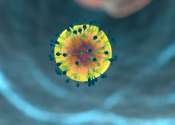Improving CAR T-cell and monoclonal antibody treatment through epitope editing
In a paper, "Epitope editing enables targeted immunotherapy of acute myeloid leukaemia," published in Nature, researchers at the Department of Pediatric Oncology, Dana-Farber Cancer Institute, Boston, introduce a genetic ...








